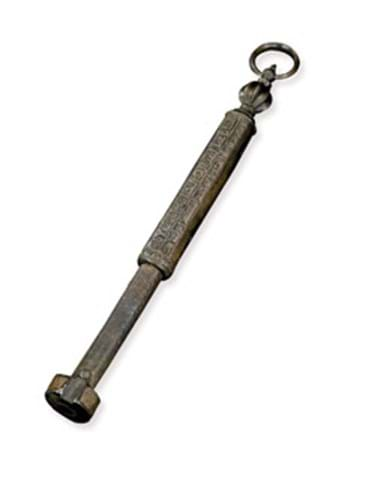
From a starting bid of £300,000, the key was taken up first by the two telephone bidders who had done the lion's share of the buying. But even their spending limits fell short of those set by English-speaking agents in the room taking bids over their own phones.
As Islamic artefacts go, the ka'ba key is one of the most important holy relics. The custom of having a key to the door of the shrine at Mecca inscribed with a dedication to the ruling caliph appears to have started in the Abbasid era (750-1258AD).
This example was formerly in a Lebanese collection and bears an inscription dated AH575 (1179-80AD). It is the second earliest of the 58 surviving examples and the only one known in private hands.
Overall, the £10m achieved by Christie's, the £18.45m at Sotheby's and the £3.48m at Bonhams constituted the highest ever Islamic hammer totals for each house.
Individually Christie's set a new auction high for an Islamic manuscript when a vellum leaf from one of the earliest Qur'ans ever produced, a mid-7th century AD copy from Medina sold to a private buyer for £2.2m, more than doubling the previous high of £1m for a Mesopotamian Qur'an set in the same rooms last November.
Bonhams obtained £1.5m for a hardstone-hilted dagger dated AH 1030 (1629-30AD) and bearing an ownership inscription to the Mughal emperor Shah Jahan.




